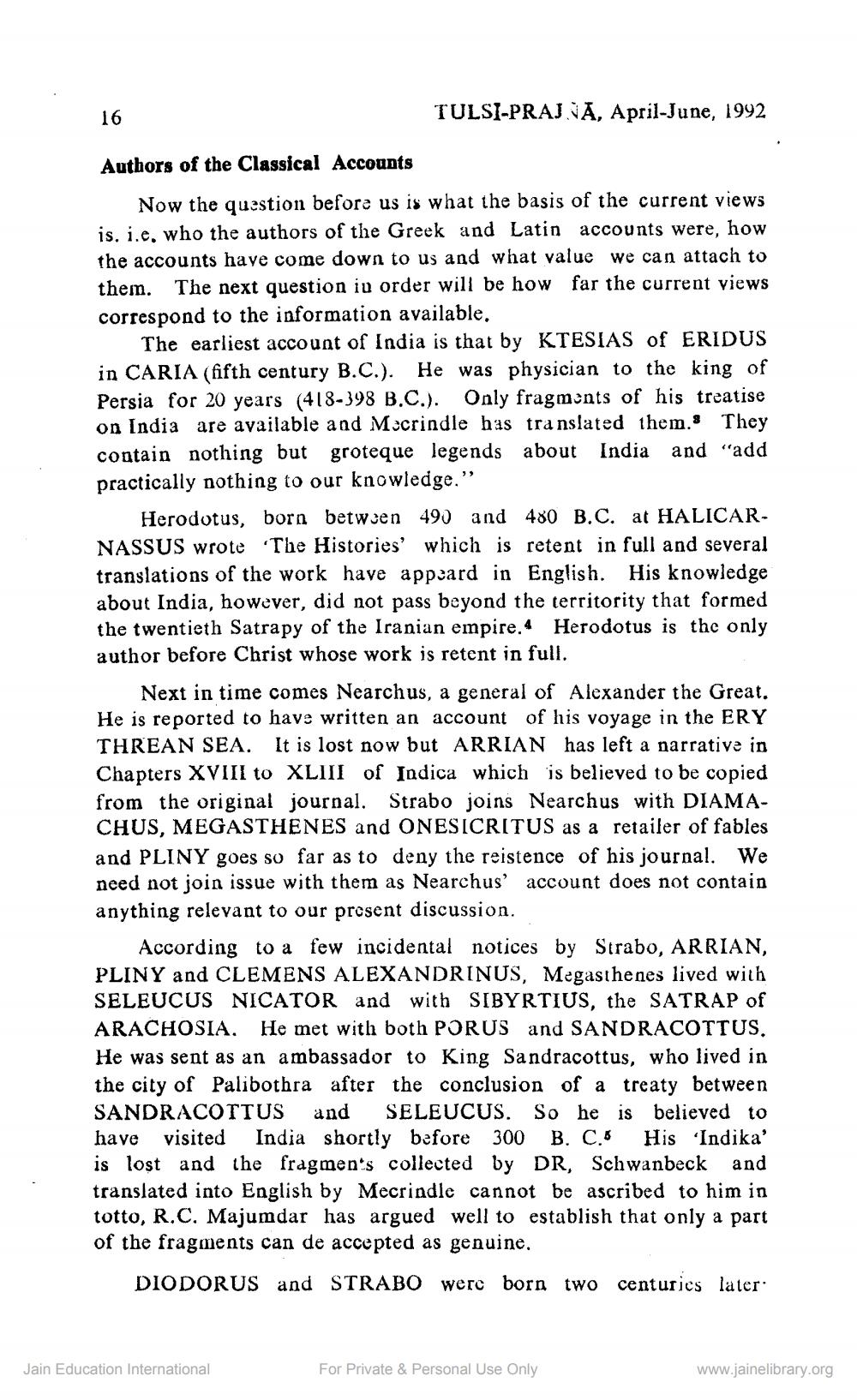________________
16
TULSI-PRAJJĀ, April-June, 1992
Authors of the Classical Accounts
Now the question before us is what the basis of the current views is. i.e. who the authors of the Greek and Latin accounts were, how the accounts have come down to us and what value we can attach to them. The next question in order will be how far the current views correspond to the information available.
The earliest account of India is that by KTESIAS of ERIDUS in CARIA (fifth century B.C.). He was physician to the king of Persia for 20 years (418-398 B.C.). Only fragments of his treatise on India are available and Mocrindle has translated them. They contain nothing but groteque legends about India and "add practically nothing to our knowledge.”
Herodotus, born betwsen 490 and 480 B.C. at HALICARNASSUS wrote The Histories' which is retent in full and several translations of the work have appeard in English. His knowledge about India, however, did not pass beyond the territority that formed the twentieth Satrapy of the Iranian empire. Herodotus is the only author before Christ whose work is retent in full.
Next in time comes Nearchus, a general of Alexander the Great. He is reported to have written an account of his voyage in the ERY THREAN SEA. It is lost now but ARRIAN has left a narrative in Chapters XVIII to XLIII of Indica which is believed to be copied from the original journal. Strabo joins Nearchus with DIAMACHUS, MEGASTHENES and ONESICRITUS as a retailer of fables and PLINY goes so far as to deny the reistence of his journal. We need not join issue with them as Nearchus' account does not contain anything relevant to our present discussion.
According to a few incidental notices by Strabo, ARRIAN, PLINY and CLEMENS ALEXANDRINUS, Megasthenes lived with SELEUCUS NICATOR and with SIBYRTIUS, the SATRAP of ARACHOSIA. He met with both PORUS and SANDRACOTTUS. He was sent as an ambassador to King Sandracottus, who lived in the city of Palibothra after the conclusion of a treaty between SANDRACOTTUS and SELEUCUS. So he is believed to have visited India shortly before 300 B. C. His 'Indika' is lost and the fragments collected by DR, Schwanbeck and translated into English by Mecrindle cannot be ascribed to him in totto, R.C. Majumdar has argued well to establish that only a part of the fragments can de accepted as genuine.
DIODORUS and STRABO were born two centuries later:
Jain Education International
For Private & Personal Use Only
www.jainelibrary.org




